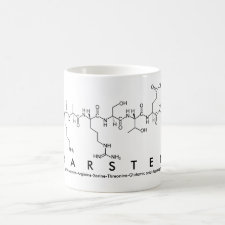
Authors: Adali-Kaya Z, Tse Sum Bui B, Falcimaigne-Cordin A, Haupt K
Article Title: Molecularly Imprinted Polymer Nanomaterials and Nanocomposites: Atom-Transfer Radical Polymerization with Acidic Monomers.
Publication date: 2015
Journal: Angewandte Chemie International Edition
Volume: 54
Issue: (17)
Page numbers: 5192-5195.
DOI: 10.1002/anie.201412494
Abstract: Molecularly imprinted polymers (MIPs) are artificial receptors which can be tailored to bind target molecules specifically. A new method, using photoinitiated atom-transfer radical polymerization (ATRP) for their synthesis as monoliths, thin films and nanoparticles is described. The synthesis takes place at room temperature and is compatible with acidic monomers, two major limitations for the use of ATRP with MIPs. The method has been validated with MIPs specific for the drugs testosterone and S-propranolol. This study considerably widens the range of functional monomers and thus molecular templates which can be used when MIPs are synthesized by ATRP, as well as the range of physical forms of these antibody mimics, in particular films and lithographic patterns, and their post-functionalization from living chain-ends
Template and target information: propranolol, testosterone
Author keywords: diazo compounds, molecular imprinting, iridium, living polymerization, ATRP



Join the Society for Molecular Imprinting

New items RSS feed
Sign-up for e-mail updates:
Choose between receiving an occasional newsletter or more frequent e-mail alerts.
Click here to go to the sign-up page.
Is your name elemental or peptidic? Enter your name and find out by clicking either of the buttons below!
Other products you may like:
 MIPdatabase
MIPdatabase









